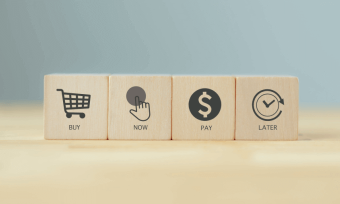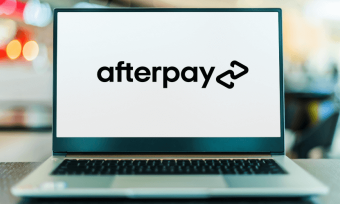What is Beforepay and how does it work?

If you need cash to cover unexpected bills but payday is still a week away, a small loan with the Beforepay app may be something you are considering. Here’s a look at how Beforepay works and some of the things you should keep in mind before using this platform.
Key points:
- Borrow up to a maximum of $2,000 plus 5% transaction fee.
- Provides an alternative to traditional ‘payday loans’ or small amount loans.
- Using the Beforepay service may be a “band-aid solution”.
Sometimes we are faced with sudden, unexpected expenses, such as home or car repairs, medical bills or extra food or transport costs. Ideally, we’d all have a buffer or emergency savings stashed away to cover these costs, but in reality, not all Aussies do.
According to Canstar’s 2022 Consumer Pulse Report, almost one-quarter (23%) of Australians were unable to save last year and three-quarters (75%) of this group said they were living pay cheque to pay cheque.
So, if you’re among those in need of some quick cash, where do you go for help?
One potential option you may be considering is a pay-advance service such as Beforepay. While this option may give you access to money sooner, there are some potential drawbacks you should consider before choosing to use the service.
What is Beforepay?
Beforepay is an app-based lending service that gives you access to credit based on a portion of your salary before payday. You then have up to four weeks to repay the loan, plus a 5% transaction fee.
Unlike other buy now pay later models such as Afterpay and Zip that let you borrow money for specific transactions, Beforepay lends you the amount as a lump sum cash advance that goes directly into your bank account.
Features of the Beforepay app
Beforepay says some features of its app include:
- Borrow up to a maximum of $2,000 for those who meet eligibility criteria.
- Fixed 5% transaction fee on any money you borrow using the app, payable on your next payday.
- No interest, ongoing costs or rates, aside from the transaction fee.
- No late fees, although if you miss a payment you will not be able to borrow any more money until it’s fully paid back.
You can track your income and expenses using the Beforepay app by linking it to the bank account your salary is paid into. From within the app, you can view your income, spending habits, upcoming bills and outstanding repayments and let the app create budgets for you automatically, based on your past spending.
You can also set up your account to receive notifications and updates on your spending and saving progress.
How does Beforepay work?
If you meet Beforepay’s eligibility criteria and decide to use it to borrow money, Beforepay will lend you the amount you choose and qualify for (up to a maximum of $2,000). If you are a new customer, your cash out limit will be between $50 and $1000.
On its website, Beforepay says its cash out service works in three steps:
- Download the Beforepay app and set up your account by linking the bank account that your salary is paid into.
- Follow the prompts and verify your ID.
- Select the cash out button and select the amount to have your funds transferred into your bank account.
You have up to four weeks to repay the loan amount plus a 5% fixed transaction fee. Automatic repayments are set up (based on the option you select when you cash out) to deduct the amount the next time you’re paid.
Beforepay says it offers flexible repayment options, with the option to repay early, or delay repayment, but you can only delay your repayments once per cash out. It also warns it can take up to two business days for your bank to settle your repayment.
How do I apply to use Beforepay?
To use Beforepay, you need to download the app to your smartphone and register for an account using your email address or Facebook credentials. Beforepay says it may also ask for some personal information such as your name, age range, mobile number and the state or territory you live in. You can then connect the app with your bank account and your work details (if you intend to use the ‘cash out’ feature to borrow money).
Beforepay advises that to use this ‘cash out’ feature, you must meet certain eligibility criteria, which it lists on its website. Some of these include that you must be paid a regular salary (weekly, fortnightly or monthly) of at least $300 after tax each week.
It may also ask you to send through documents to verify your identity before you can gain access to the feature. Beforepay says self-employed people and business owners are not eligible, nor are people who work from home or receive a majority of their income from Centrelink.
Beforepay says it doesn’t run credit checks nor affect your credit score, but as part of its own assessment process it does analyse the income and expenses connected with your bank account, to ensure you are able to make repayments.
→ Related article: Is getting paid before payday too good to be true?
Pay-advance vs payday loans: What’s the difference?
Pay-advance lending services such as Beforepay provide an alternative to traditional ‘payday loans’ or small amount loans. Payday loans generally let you borrow up to $2,000 with a repayment period of anywhere between 16 days and one year.
According to the Australian Government’s Moneysmart website, a payday loan has “a lot of fees” and you will pay back a lot more than you borrowed.
Beforepay repayments will almost certainly cost you less than a payday loan would, but keep in mind that it is still a loan and you will need to make the repayments plus pay the transaction fee.
Moneysmart says if you’re struggling to pay any bills or fines, you should explore alternatives to a payday loan, including talking with a free financial counsellor.
Pros and cons of Beforepay
Using a pay-advance service such as Beforepay may prove helpful in some instances, but there are also some drawbacks to be aware of.
Some potential pros of Beforepay:
- You can access money quickly when you need it, rather than waiting until your payday.
- You pay a one-off fee each time you borrow money, with no other ongoing fees.
- The fee may be lower than fees attached to other products, such as payday loans.
- There are no late fees, however you will not be able to use the service again until outstanding amounts have been repaid.
Some potential cons of Beforepay:
- There are limits to the amount of money you can access.
- You pay a fee to access the money that you wouldn’t pay if you are able to wait until your payday.
- This fee could be up to $100 if you borrow Beforepay’s maximum of $2,000.
- Using this service may be a “band-aid solution”, according to Canstar’s Editor-at-Large Effie Zahos.
“If you don’t have enough cash flow to get you through to your next pay, and no buffer to handle any unexpected expenses that crop up, it could mean there is an underlying issue,” Ms Zahos warns.
What are some similar apps to Beforepay?
Some apps that offer similar pay-advance lending services to Beforepay include:
- CommBank’s AdvancePay
- Employment Hero’s InstaPay
- Earnd
- PayActiv
- MyPayNow
These services vary in the amount they lend, the fees they charge and how they operate (for example, some require activation by your employer), so make sure you read the terms and conditions of these services carefully before choosing to use them.
What are some alternatives to using Beforepay?
Before taking out a loan with the Beforepay app, you might want to consider the following alternatives if you are eligible:
- The No Interest Loan Scheme: If you have a Health Care Card or receive an eligible concession, such as the Age Pension or Disability Support Pension, you may be able to take out a small no-interest or low-interest loan. These have little to no interest and have no additional fees or charges.
- Centrelink advance payment: If you receive a regular Centrelink benefit, you can apply to receive an advance payment. You repay the amount out of your future Centrelink payments and there is no interest, fees or charges.
- Contact your service providers: If you are struggling to pay your bills, it may be a good idea to talk to your service provider about possible payment alternatives. You may be able to work out a payment plan for your bills so that you can make the repayments in instalments.
- Ask your bank for support: If you are struggling financially, you can also approach your bank or financial institution directly to ask for advice and support or to negotiate a payment plan. Many banks offer financial hardship support as part of their services, but keep in mind that the advice on offer may not always be independent.
- Talk to a financial counsellor or seek free, independent financial advice.
Cover image source: fizkes/Shutterstock.com
This article was reviewed by our Deputy Editor, Canstar Amanda Horswill before it was updated, as part of our fact-checking process.







